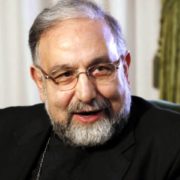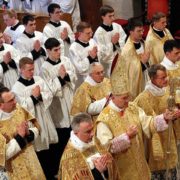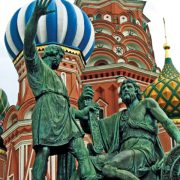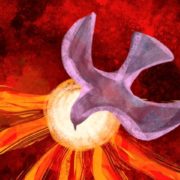The story that all in China love to read, which has long been a primer on the intrigues of power, Luo Guanzhong’s 14th century historical novel Romance of the Three Kingdoms famously starts with, “the empire, long divided must unite; long united, must divide”, according to Moss Roberts’s English translation.
These few words have been the essence of Chinese historical cycles for some 3,000 years, and are the main issue concerning President Xi Jinping at the upcoming 19th Party Congress. The power of the party, which had been slowly scattered and diluted among senior leaders and even junior officials since Mao Zedong’s demise in 1976, is being brought back into the hands of one man: Xi Jinping. Yet, after the buildup of authority with this congress, Xi will have to redistribute it—otherwise, in a while things could spin out of control.
How and why the buildup occurred is roughly clear (through the ongoing anticorruption campaign). How and if the redistribution of clout will happen is still a questions mark. But to get to distribution perhaps we still have to shed some light on a few elements of Xi’s path to “total rule.”
In recent years, Xi had the support of a relatively small circle of people untainted or only marginally tainted by the corruption wave that engulfed the country in the past decades. At the beginning of the anticorruption campaign, they gained the mocking sobriquet of “puritans,” just because unlike the majority of the other officials, they had shown little or no interest in bribes.
Some of them actually had ghastly memories to tell. Some were sent down to the provinces as new officials and soon were surrounded by offerings. When they declined them, maybe also out of caution, local cadres fabricated false evidence to incriminate and blackmail them. Others had tales of how they narrowly escaped death or prison at the hands of provincial bosses who were under investigation from Beijing.
It was the time when the top leadership shut one eye, and sometimes both, to sleaze, considered a lubricant and accelerator of economic growth. Yet, at times, some leader would change his mind and start a campaign of annihilation against a certain group. This left some low- and middle-ranking officials disoriented and frustrated.
It is possible that this was also Xi Jinping’s personal experience. He was a middle-rank officer in Fujian in the late 1990s when Beijing swept the southern province hunting down the smugglers of Lai Changxing, supported by the military and local authorities.
That episode was also the first time officials realized unbridled corruption would have a macroeconomic impact. In fact, some economists then calculated that if China applied the tariff cuts required by the US to enter the World Trade Organization (WTO), the amount of those cuts would cost the country less than the total amount of tariff duties evaded by smuggling. That is, if China at the same time cut the smuggling and the tariffs, it would increase tax income and would comply with the Americans’ requirements.
We don’t know what young Xi was thinking at the time, but indubitably he was in the middle of it and the arrest of the Fujian bosses in Lai Changxing’s pockets paved the way to his further career.
These elements tell us that possibly the “puritans” understand that corruption has a broad and deep economic impact for the country, which can eventually be brought to a halt by the mere weight of skullduggery. This is reflected in the sense of urgency in the present anticorruption campaign.
Moreover, their personal experiences with fake accusations fabricated by real crooks give them a sense of perspective when hearing allegations hurled by shady billionaire turned graft-buster Guo Wengui. To many of them this is deja vu from the past, and the first instinct is to sympathize with the target of the allegations and reject whatever Guo says.
The “puritans” are also realists because they lived and politically survived through decades when kickbacks were the natural way of life. Some of them might still have skeletons in the closet, but that would be a fraction of what was going on at the time, because these people may also be dreamers.
The first generation of Chinese leaders were professional revolutionaries, like Mao, Zhou Enlai, and Deng Xiaoping. They were men of vision but not really managers of the country. A second generation, like Jiang Zemin and Hu Jintao, were engineers, technocrats in charge of developing the country. This third generation is something different.
The new-new guys who are expected to enter the Standing Committee, like Chongqing party chief Chen Min’er and Guangdong party chief Hu Chunhua, graduated with degrees in Chinese literature; they were aspiring writers and poets. Xi himself studied philosophy and law. In this their upbringing looks similar to that of the founding fathers of the Chinese Communist Party, Chen Duxiu and Li Dazhao, who were trained classical scholars with a political interest and saw the future of China through the lens of a broad vision, a dream.
Xi’s people’s vision is the China Dream, which sounds like the Chinese version of the American dream. And as nomen omen (or in Chinese mìng jiu shi ming 名就是命), it could be the American dream with Chinese characteristics, just as Chinese communism won by being first Chinese and then communist.
In this Chinese version of the American dream, there must be some redistribution of power; otherwise there is no dream at all. But in order to distribute power, it must be first fully accrued; otherwise the dream, which is first Xi’s dream, can be hijacked by people with different dreams or no dream at all. Yet, here an ideal and practical problem at once: when is power concentrated enough to be redistributed?
In theory, there are two examples in China’s vicinity that can work as precedents: South Korea and Taiwan. Both former dictatorships both turned into highly functional democracies. One kept the momentum of economic growth (South Korea), while one stalled economically and got embroiled in internal bickering.
There is no consensus on why one stalled and one kept going. Some say Taiwan is not working because there is too much democracy; others argue it is because Taiwanese entrepreneurs migrated almost en masse to the Mainland since the 1990s, lured by favorable policies and huge opportunities. This deprived the island of capital and ideas. In a way China’s growth is also the result of Taiwan’s successful transition and its stalling.
In any case, in Taiwan, Jiang Jingguo (1910-1988, former president of Taiwan) started his liberal reforms in the 1980s after he had far more power on the island than Xi Jinping has now in China.
But sitting on a complex country of almost 1.4 billion people, can Xi ever have the amount of power Jiang had over a country that had barely 1% of China’s present population? And when will China feel that there is too much pressure and start to react? Or in the words of Luo Guanzhong, the empire long united must divide.
In fact, they are literature majors and all know it. In China there are signs of strain, evident in the unofficial spread of Guo Wengui’s allegations in the internal media. However, most people still support Xi, who improved their lives by unloading the financial and human stress of corruption.
But things do not end here. These calculations are also an external affair because of the international impact China has in the world. That is, Xi and his guys need to win over not only the hearts and minds of the Chinese people but of all the people who are impacted directly or indirectly by Chinese policies.
The US does it by drawing global attention to the circus of its presidential elections. Non-US citizens do not vote but everybody has a chance to follow, scrutinize, and try to pull strings in the American elections. In fact, the recent electoral scandal is about Russia pulling too many strings and doing it illegally.
None of this exists in China. It is just the opposite. If the recent cover story of The Economist is right, that Xi is more powerful than US President Donald Trump, we have a paradox here. The 19th Party Congress is then the most important political event of the next five years, and yet it receives maybe less than 1% of the international coverage of the American elections!
It is simply because there is almost nothing to cover: no campaigns, no interviews, no breaking news. Nothing. This means also no external interference, which may be fine, but also no way to win the hearts and minds of the people. Many on the planet and in America may not like Trump, but 90% of the world loves the US elections and follows them.
This makes the US president also the president of the world (something that Trump may have not fully realized, but this is a different story), and also makes the Chinese president only the president of China. Thus every extension of the interests of this country in the world is almost undue, almost an invasion. Here again something needs to happen.
Yet, this is all about the time after the congress, when Xi and his guys will have to start thinking about redistribution of power. It might not take too long. In fact, the issue will come up right after the congress during the Xi-Trump summit in early November in Beijing. Trump will want to know what China wants to do with North Korea and trade, and Xi will have to react. Xi will try to drag on and gain time, but it will be hard and with these reactions, he will choose policies with an internal and international impact.






Hi there I am so thrilled I found your web site, I really found you by mistake, while I was
searching on Google for something else, Nonetheless I am here now and would just like to say many thanks for a
marvelous post and a all round exciting blog (I also love the
theme/design), I don’t have time to browse it all at the minute but I have saved it and also added in your RSS feeds, so when I have time I will be
back to read more, Please do keep up the excellent
jo.